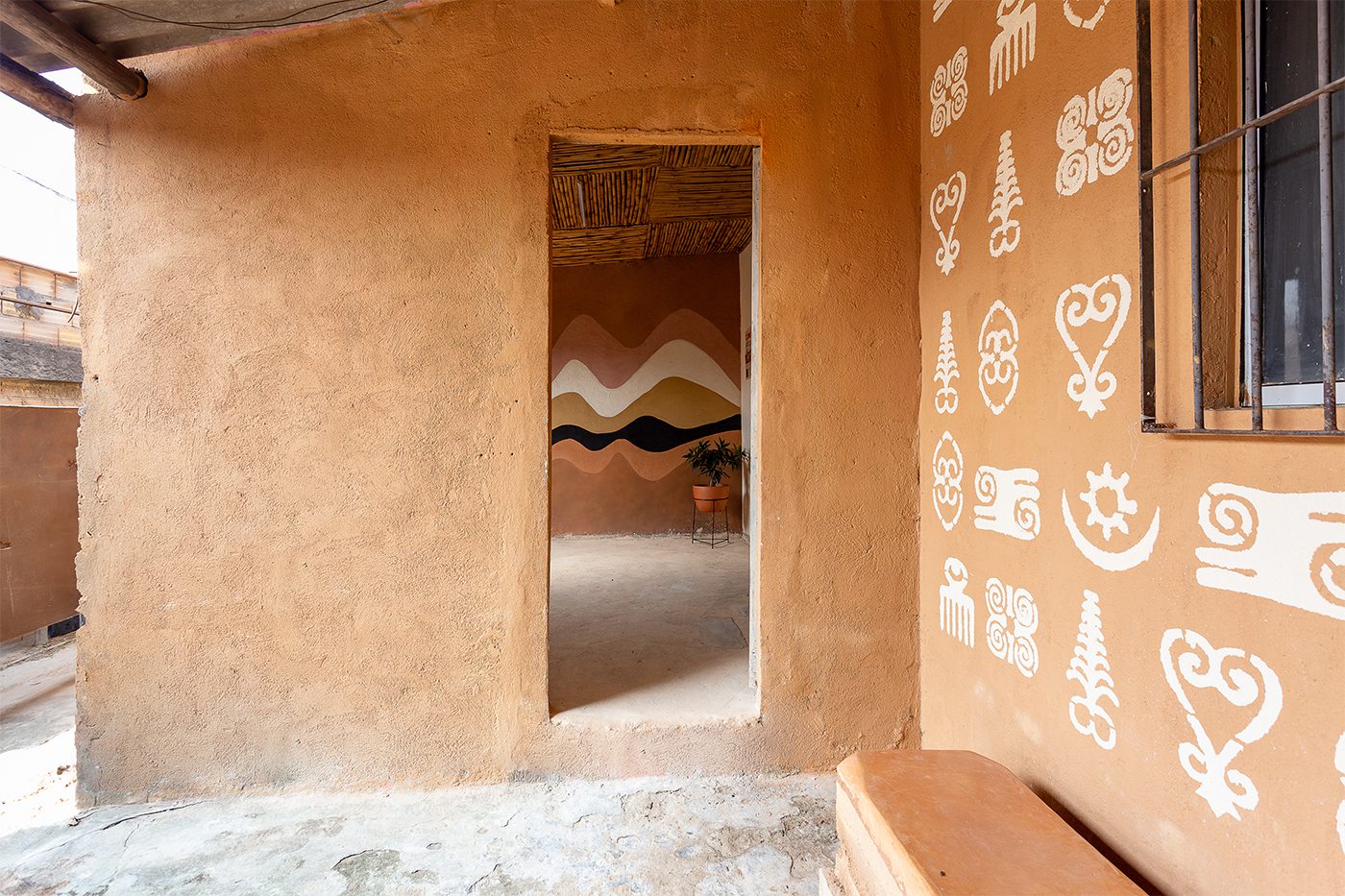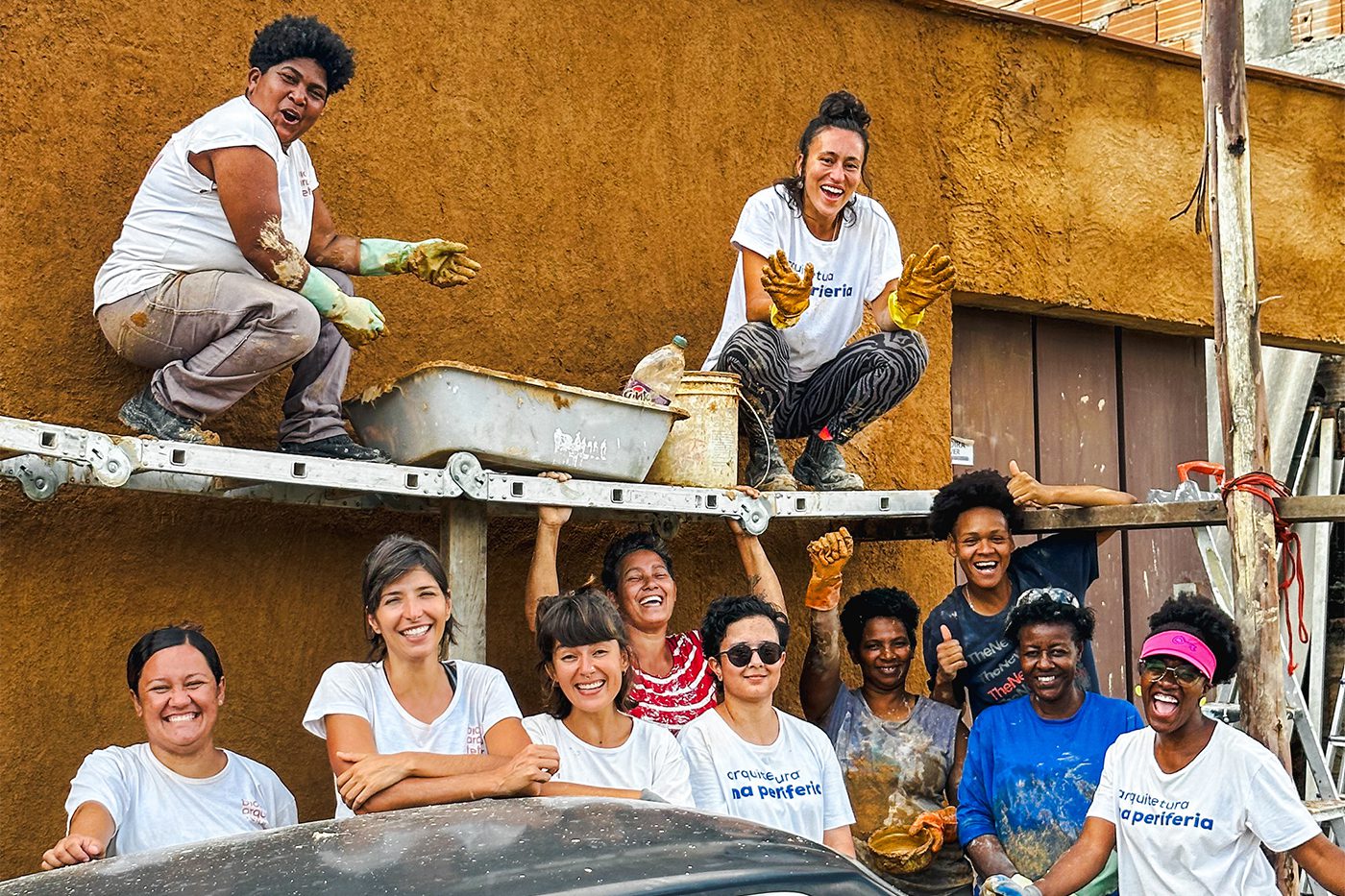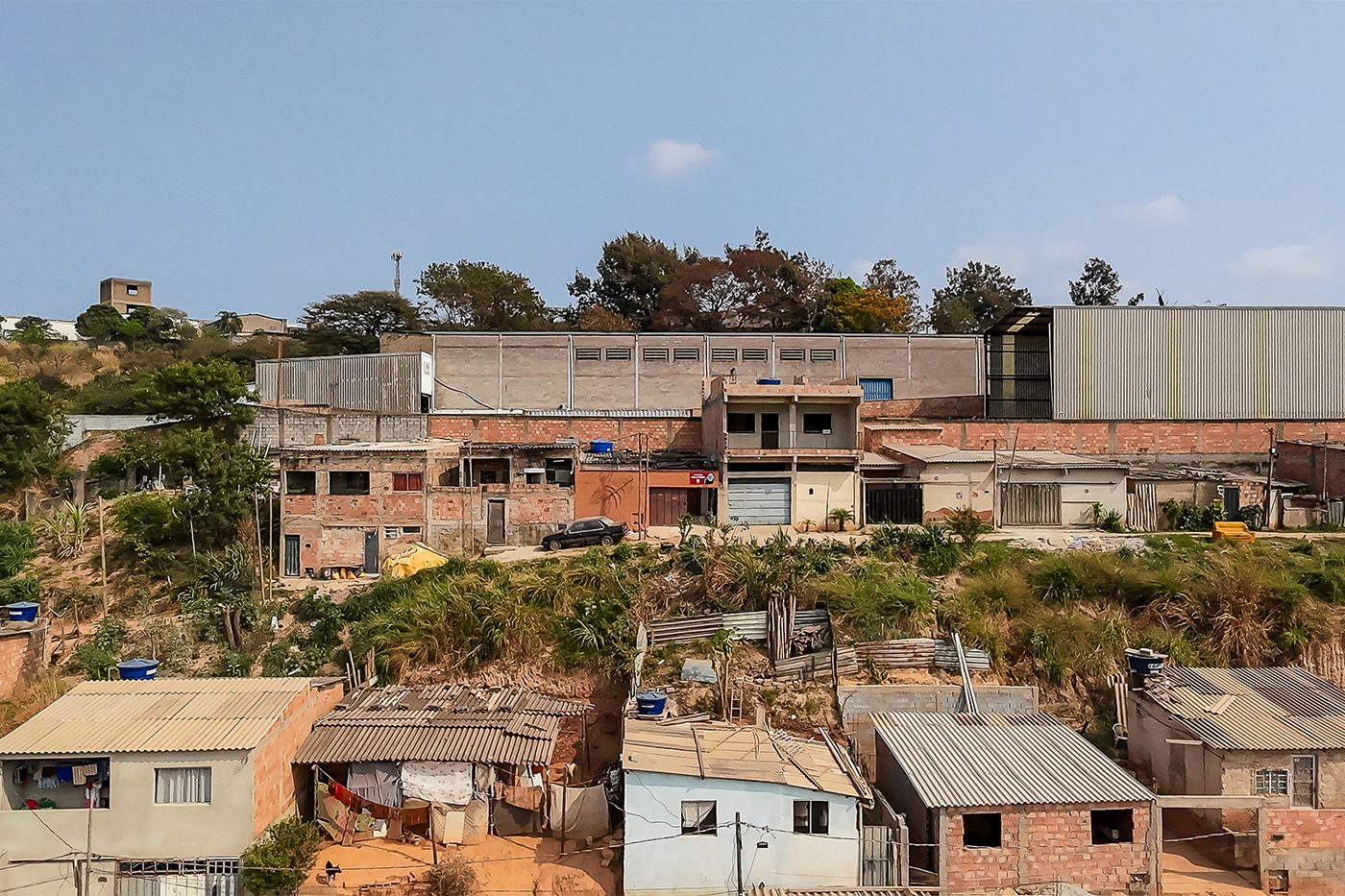Project implementation: Brazil
Project development: Brazil
Since 2013, Arquitetura na Periferia has been providing technical assistance to women in peripheral communities, using a method based on knowledge sharing, cooperation, and empowerment. Recognizing the protagonism of women in their territories, the initiative contributes to ensuring that spatial planning and production are tools for addressing urban inequalities and the effects of the climate crisis, which are increasingly intense in peripheral communities. In 2023, the AnP BIO project emerged with the goal of applying the guiding principles of AnP's technical assistance to the restoration of community spaces, using low-environmental-impact techniques and nature-based solutions.
The project that comprises the exhibition was carried out at the Paulo Freire Occupation Cultural Center in Belo Horizonte. The experience brought together women in a training cycle that combined discussion groups and studies on non-colonial building cultures of Latin American, African, and Indigenous peoples, co-creation workshops, field trips, hands-on workshops, and community outreach. The group collectively designed the necessary improvements and implemented interventions using earth, bamboo, and recycled materials. Highlights of the transformations include: plastering and painting the facade with earth, earthen flooring in the living rooms, bamboo ceilings, a rammed earth bench in the outdoor living area, the reuse of ceramic tiles for the bathroom, and the construction of a green roof. The participants also incorporated Adinkras into the walls, reviving these symbols, originating from West Africa, as a gesture of identity affirmation and resistance.
More than just physically restoring the space, the experience redefined the territory and expanded the collective imagination about what it means to build from nature and available resources. By giving women back the power to create their own spaces, the project creates a network of knowledge transmission that extends beyond the construction site, influencing daily practices and possible futures for the community.
Architecture built with natural materials and ancient techniques in peripheral urban areas poses significant challenges. Confronting the stigma that associates land use with precariousness and adapting these practices to dense areas with small lots and pre-existing buildings requires inventiveness. The method proposed by AnP BIO, open and developed in collaboration with residents, allows these limitations to be transformed into creativity and collective experimentation, revealing the transformative nature of the practice.
By connecting architecture and political ecology, experience shows that transforming space is also an act of resistance and affirmation of rights. The renovation of the Paulo Freire Cultural Center made the space more welcoming and resilient and, above all, pointed to ways to address the climate emergency through self-management, care, and the collective strength of women.




